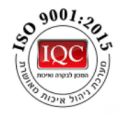The Importance Of High-Quality Reagents In Accurate Experimental Results
Experimental investigations play a critical role in scientific research in advancing knowledge and understanding. These experiments rely heavily on the use of reagents, which are substances or compounds used to produce a chemical reaction or measurement. We can not ignore the importance of high-quality reagents in accurate experimental results. The quality of reagents utilized in these experiments can significantly impact the accuracy and reliability of the results obtained. Therefore, it is crucial to prioritize using high-quality reagents to ensure the integrity of experimental outcomes. Let’s discover the importance of high-quality reagents in achieving accurate experimental results for reliable scientific research.
Defining High-Quality Reagents
High-quality reagents refer to substances that meet specific standards of purity and reliability. These reagents undergo rigorous quality control measures to ensure they are free from impurities that could introduce variability or bias into the experimental process. Laboratory testing is essential to quality control, involving thorough analysis to verify the reagents’ composition, concentration, and overall quality.
Importance Of Reagents In Laboratory Experiments
Reagents play a vital role in laboratory experiments by enabling and facilitating specific chemical reactions. They are instrumental in measuring essential characteristics of substances, making them indispensable in various scientific disciplines, particularly chemistry and chemical engineering. Reagents are key components in processes such as titrations and redox reactions, contributing significantly to the success and accuracy of experimental outcomes.
Clinical Laboratory Testing
Clinical laboratory testing is a critical component of healthcare, providing crucial data that informs medical decisions and helps determine a patient’s health condition. The reliability and accuracy of laboratory results are of utmost importance, as healthcare providers heavily rely on them for diagnosis, treatment planning, and monitoring. Clinical laboratories must adhere to strict regulatory requirements and meet scientific standards to ensure the validity and reliability of their testing procedures.
Indicators Of Test Reliability
The reliability of clinical laboratory testing is commonly evaluated using four key indicators: precision, accuracy, sensitivity, and specificity. Both precision and accuracy reflect the effectiveness and consistency of laboratory tests. Specifically, precision measures how closely repeated test results agree with each other, indicating the reliability and reproducibility of the testing process.
On the other hand, accuracy assesses how closely test results align with the true value, providing an indication of the absence of systematic errors. These essential indicators not only ensure the efficiency of laboratory tests but also guarantee the generation of reliable and consistent results.
Sensitivity and specificity are measures of a test’s ability to differentiate between disease and non-disease states. Sensitivity evaluates a test’s ability to correctly identify individuals with the disease, minimizing false-negative results. On the other hand, specificity assesses a test’s ability to identify individuals without the disease, reducing false-positive results correctly. These metrics are derived from rigorous studies and serve as critical medical benchmarks.
Maintaining Accuracy Through Quality Control Tests
Quality control tests are designed to validate the accuracy and precision of laboratory reagents. These tests typically involve the analysis of control samples with known values, allowing researchers to assess the performance of the reagents. Any deviations or discrepancies can be identified and addressed by comparing the results obtained from these control samples with the expected values. This process is integral to the quality assurance procedures implemented in laboratories.
Minimizing Errors For Reliable Results
The presence of impurities or contamination in reagents can introduce errors in experimental outcomes. Systematic errors, such as those caused by impure reagents, can lead to biased results and misinterpretation of data. The impact of such errors is particularly significant in analytical methods and procedures that rely on precise measurements and accurate concentrations. So, by using high-quality reagents, researchers can minimize errors, ensuring the reliability and validity of their findings.
Enhancing Sensitivity And Accuracy
The quality of reagents directly affects the sensitivity and accuracy of analytical methods. Reagents with impurities or inconsistent compositions can compromise detection sensitivity, leading to false-negative or false-positive results. Accurate concentrations and precise compositions are crucial for obtaining reliable data, especially in clinical laboratories where patient samples are analyzed. High-quality reagents enable researchers to achieve the desired level of sensitivity and accuracy, facilitating accurate diagnoses and informed decision-making.
Cost-Effectiveness And Time Efficiency
Investing in high-quality reagents may require a higher initial cost, but it can save time and money in the long run. Low-quality reagents often result in inaccurate or unreliable data, leading to wasted resources and repeated experiments. On the other hand, using high-quality reagents minimizes the need for repeated tests due to errors, allowing researchers to progress efficiently in their work.
Additionally, accurate and reliable results obtained with high-quality reagents can expedite the development of new treatments and technologies, ultimately benefiting society.
Classification Of Laboratory Reagents
Understanding the classification of laboratory reagents is crucial for efficient organization, proper storage, and effective utilization in scientific experiments. Here are some common classifications of laboratory reagents:
Analytical Reagents:
Analytical reagents are high-purity substances used in analytical methods and procedures. These reagents must often meet stringent quality control standards to ensure accurate and reliable results. Analytical reagents can include acids, bases, solvents, indicators, and buffers.
Reference Standards:
Reference standards are reagents with precisely known concentrations or compositions. They serve as a benchmark for comparison and calibration in analytical measurements. Reference standards are critical for establishing accuracy and traceability in laboratory analyses.
Graded Reagents:
Graded reagents are classified based on their level of purity. They often receive designations such as “AR” (analytical reagent), “LR” (laboratory reagent), or “CP” (chemically pure) to indicate their purity levels. Researchers and scientists commonly utilize graded reagents in general laboratory procedures and research applications.
Specialized Reagents:
Specialized reagents undergo tailoring for specific applications or experiments. They encompass molecular biology reagents, cell culture reagents, chromatography reagents, immunohistochemistry reagents, and many more. These reagents possess designs that cater to the unique requirements of specialized laboratory techniques and methodologies.
Indicator Reagents:
Indicator reagents change color or exhibit a characteristic response in the presence of specific substances or under certain conditions. These reagents are widely used in tit-rations, pH measurements, and various qualitative tests to indicate the endpoint of a reaction or the presence of particular ions or compounds.
Stains And Dyes:
Stains and dyes enhance the visualization of specific structures or components in biological or chemical samples. Researchers and scientists commonly employ them in microscopy, histology, and molecular biology experiments to highlight specific cells, tissues, or molecules of interest.
Control Reagents:
You can use control reagents to establish a reference point or control group for comparison in laboratory testing. They help assess the performance and accuracy of analytical methods and instruments by providing known values or known responses. Control reagents are essential in quality control procedures to ensure the reliability and consistency of results.
Solvents:
You can use solvent reagents to dissolve, dilute, or extract other substances. You can use them in various laboratory procedures, such as sample preparation, chromatography, and extraction techniques. Common solvents include water, ethanol, methanol, acetonic, and chloroform.
Understanding the classification of laboratory reagents enables scientists and researchers to select the appropriate reagents for their specific experimental needs. Moreover, it aids in maintaining proper storage conditions, ensuring safety, and promoting efficient laboratory practices. Specifically, in the case of solvents, knowledge of their properties, such as polarity and boiling point, can inform the selection of the most suitable solvent for a given task.
Additionally, understanding the hazards and proper handling procedures for each type of solvent can prevent accidents and ensure the safety of laboratory personnel.
Conclusion
High-quality reagents are essential for obtaining accurate and reliable experimental results. Through stringent quality control measures, laboratory testing, and quality assurance procedures, researchers can ensure the integrity of their experiments. High-quality reagents minimize errors, enhance sensitivity and accuracy, and improve cost-effectiveness and time efficiency.
By prioritizing using high-quality reagents in analytical methods and procedures, researchers can confidently advance scientific knowledge, improve patient care in clinical settings, and foster innovation in various fields of study.



